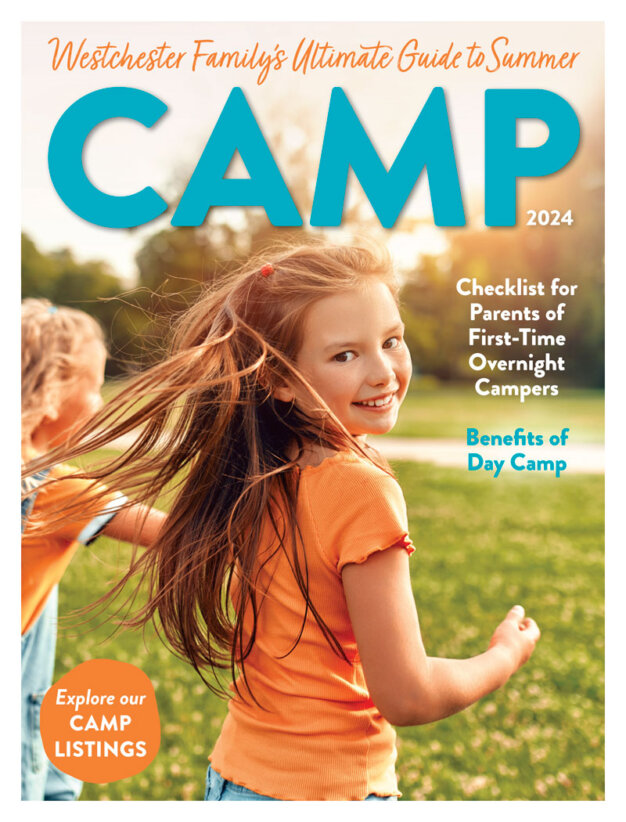Here’s a News Feed for parents out there:
Kids as young as fourth grade are routinely lying about their age to open Facebook accounts.
Colleges have rescinded admissions offers after discovering what they deemed troubling posts by prospective students.
Two Brookline, Mass., high school seniors were arrested earlier this year after police learned of their Facebook chat that centered around plans to commit a “massive genocide” at school. They were just kidding, their attorneys told the judge.
“It’s not that kids are evil or bad, they’re just not wired well to use these tools thoughtfully,” says Doug Fodeman, co-founder of Children Online, a website that gives parents information and tips to help their kids navigate cyberspace safely. “Our experience has shown us that their strategy to deal with difficult situations online is simply impulse, whatever pops in their head.”
And probably, with the exception of Einstein, most of us are better off without the whole world knowing whatever pops in our heads.
For good or bad, Facebook appears to be more than a passing fad; 500 million people now use the wildly popular social media site founded in 2004 by then Harvard University student Mark Zuckerberg. It’s helping friends and family stay connected all over the world, and has forever changed how teens socialize with one another.
Even the movie The Social Network about Zuckerberg (Time magazines’ 2010 Man of the Year) did very well at this year’s Academy Awards, having won three awards.
Rather than fight it, Fodeman and others who study child behavior say parents can use Facebook to help teach children how to make good decisions by talking about who they choose to “friend,” what they and others post, and even what they “like.” His research indicates that 90 percent of all ninth-graders are now on Facebook.
“Expecting our kids to say and do everything right is unrealistic,” says Joanie Geltman, a veteran child development expert who teaches at Leslie University and Curry College in Massachusetts, writes, and
lectures widely about teen issues. “To me, this is a chance to be teaching them life skills that will last a lifetime. It gives you entry into their world.”
To make this journey a little less rocky, social media and child development experts offer a few suggestions:
Parents Should be on Facebook.
“We are surprised by the number of parents who have kids on Facebook who aren’t on Facebook,” says K. Jason Krafsky, a social media expert who co-wrote the book Facebook and Your Marriage. “They are really putting their kids into unchartered territory.” Parents should also learn how to use Facebook tools, such as tagging photos, and the privacy settings.
Children should be at least 13 before they go on Facebook.
“If they ask when they are younger, you have to stick to your guns on this and say no, otherwise they will be hanging out with a much older crowd,” says pediatrician Gwenn Schurgin O’Keeffe, M.D., and author of the new book CyberSafe. “Developmentally, they are not ready.”
Fodeman argues that children should wait until age 16 to get on Facebook, when they are more mature to handle it. After all, it was a site created for college students.
Know your child’s user name and password.
“This is rule No. 1,” says Fodeman. He says children generally perform better when they know parents have set boundaries for them. Let children know you will log in periodically to read their wall, news feeds and inbox, to make sure they use Facebook responsibly and to help keep them safe. If you are only a “friend” to your child, they can hide certain information from you.
Ask your child to “friend” you.
“Some say that’s an invasion of privacy, I say absolutely not,” says Schurgin O’Keeffe. “If you have a good relationship with your kids, they will want to. If they don’t want to, there’s a red flag there.”
Geltman, however, disagrees and says kids deserve some distance from their parents. “I think if I was 13, I wouldn’t want my mother on there ‘friending’ me.” She suggests there are other ways to keep tabs on Facebook use, such as reviewing the child’s site together.
Limit “friends” to real friends.
It’s not uncommon for teens to have hundreds, even thousands, of “friends.”
“We tell our girls to ‘friend’ people you are actually friends with, someone you call or text or do an activity with; otherwise you don’t know what they’re going to do,” says Schurgin O’Keeffe.
Kelli Krafsky, the other co-author of Facebook and Your Marriage, says she has asked her son to “unfriend” someone who seemed like a bad influence. “Everything you put on there is a reflection of who you are. You really have to be guarded.”
Don’t “friend” teachers.
This advice is for parents and students. St. John’s Preparatory School, a private all-boys school in Massachusetts, recently adopted a policy that prevents teachers from “friending” students. The state of Virginia was expected to vote last month on a similar policy for all public school teachers.
“From the faculty perspective, I think there was some relief when we put it in writing,” says Wendy Olson, St. John’s assistant principal for student life. Teachers didn’t want to be put in the position of potentially discovering inappropriate material and feeling obligated to act on it.
Fodeman also discourages parents from trying to “friend” children’s teachers, as it puts the teachers in a tricky spot. “If I am a teacher and I friend six parents out of my 19 students, suddenly they have access to me in ways other parents don’t,” says Fodeman.
Give your kids some breathing room.
There are websites actually devoted to the embarrassing posts parents leave on their kids’ Facebook pages. Try to avoid replying to kids’ status updates or to post any photos that your teens may find humiliating, says Kelli Krafsky. You’re also more apt to get a true picture of your child if you’re not always leaving comments.
Talk offline about what happens online.
“The conversation piece is the most important part,” says Geltman. “I see Facebook as an opener of not judging people and behavior, but trying to understand it. If your 13-year-old daughter’s friend posts pictures of her new belly button ring, ask her what she thinks of it, she adds. Don’t say, ‘That’s disgusting!’ “If you start to lecture, they will shut down.”
Teach kids to protect their privacy.
Remind children to never post cell phone numbers, house addresses, or the fact that their parents will be out on a Saturday night. Help children evaluate what types of photos to post. Also, kids should know that some Facebook applications (quizzes, games, etc.) are disguises for adware and spyware programs.
Teach kids to protect their reputations.
It’s not a scare tactic: College admissions check applicants’ Facebook accounts. Fodeman knows of a case where an Ivy League school rescinded an offer to an accepted student after discovering humiliating online photos of her drunk.
“She didn’t post the photo, a friend did,” he says. “Kids don’t realize they are building an online reputation.” Their pages are viewed by parents, potential employers, school administrators, the police and summer camp directors, he adds. One way is if your child becomes a fan of or clicks “like” for a group, potential school or employer. Once that happens, people associated with those groups can view your child’s
Facebook profile.
Let them know that you are an ally.
If a child is ever in a dangerous, destructive or unsafe situation, make sure he knows he should come to you, says Schurgin O’Keeffe. It’s parents’ job to keep their kids safe and, the truth is, any child on Facebook is at risk for being bullied because kids online often act bolder than in real life.
Embrace Facebook for all of its benefits.
This is now the place where kids go to socialize with their friends. “It’s fun to be on Facebook and see what other kids are up to,” says Geltman. “There are also advantages for kids who are isolated because it gives them a chance to practice some social skills.” There may be a shy girl who makes a witty comment on Facebook and the boy she likes thinks, “She’s really funny. I never knew that about her before.”
Schurgin O’Keeffe sees Facebook as an effective way for teens to communicate with each other, about homework and car pool plans, for example. The key is to make sure your kids know that real living takes place offline.
“Kids really are different than when we grew up, Schurgin O’Keeffe reminds us, “and parents are deluding themselves if they think otherwise.”
Susan Flynn is an associate editor with Dominion Parenting Media.
Staying Happily Married on Facebook
For all the perils facing teenagers online, parents need to be wary of their own use of social networking sites. There are stories all the time about married spouses rediscovering old flames or igniting new ones through Facebook. K. Jason and Kelli Krafsky, authors of the new book Facebook and Your Marriage (Turn the Tide Resource Group, 2010; $19.99), offer some advice for keeping those online relationships from crossing the line:
- Never friend any ex-boyfriends or girlfriends. There is nothing beneficial that comes from bringing that attachment into your married life.
- Share user names and passwords. When you are married, you should have no secrets and nothing to hide.
- Don’t rant about the other person in your status update. It doesn’t build trust or foster respect, plus no one wants to read it.
- Say something nice about your spouse on Facebook at least once a week. It’s a nice way to figuratively shout it from the rooftops how much you love this person.
- On your anniversary, change your profile photo to a wedding shot.
- Decide together what you are willing to broadcast about your lives. Don’t wait to find out after you have crossed the comfort line.
- If your spouse is complaining that you are spending too much time on Facebook, then you are spending too much time on Facebook.
RESOURCES
Books
• CyberSafe, by Gwenn Schurgin OKeeffe, M.D, American Academy of Pediatrics, 2011. This book by a pediatrician offers parents a guide to social networking sites, cyberbullying, gaming and how to help your child create a positive digital footprint.
Online
• Children Online – www.childrenonline.org – is a site run by educators Doug Fodeman and Marje Monroe to provide up-to-date information about the use and impact of technology on child and adolescent behavior. Site includes helpful information about scams, tools for parents, and ways to teach children to be media savvy. The founders travel to schools around the county to provide workshops to parents and students.
• Joanie Geltman – www.joanigeltman.blogspot.com – is a new blog all about teens by this noted development expert, popular lecturer and Lesley University instructor.
• The Social Media Couple – www.socialmediacouple.com – offers many articles on how relationships are affected by social media and what to do about it.









